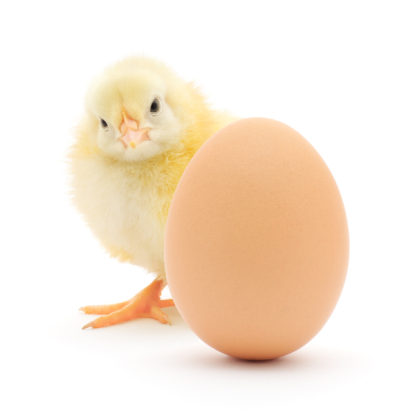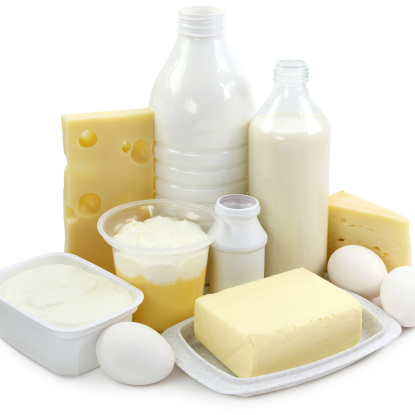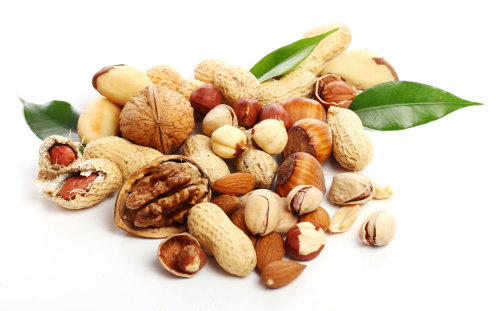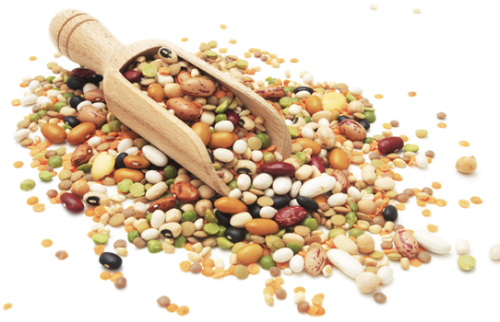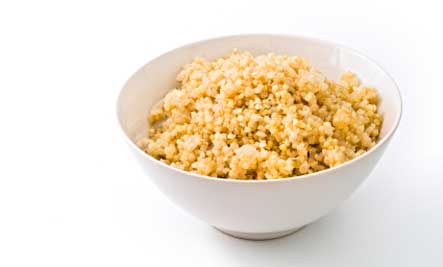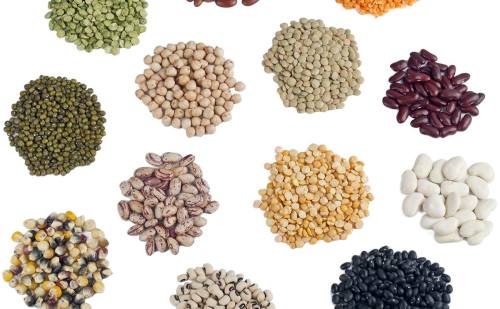Protein-rich foods – without meat & fish
Without abundant protein currently nothing works. More and more people rely on a protein-rich diet. But what to do if one is a vegetarian and neither meat nor fish like? Finally, these are absolutely the protein sources …
But not the only ones! There are also many sources of protein for vegetarians – pure vegetable such as nuts and seeds, but also dairy products such as cheese. That’s good, because protein is essential for our body. It needs the protein for various metabolic processes.
Per kilogram of body weight to eat about 0.8 grams of protein. That’s about 47 grams of protein per day for a woman and 59 grams for a man on average. The protein content of the diet should make up about 15 to 20 percent.
Anyone tried the food on the following pages and all eating regularly, is well supplied with protein.
Eggs
Eggs are good sources of protein, especially the yolk. In 100 g egg, 13 g protein plug that are at a normal 60-gram egg about 8 grams of protein.
Milk & Milk Products
Milk and milk products are known for their high calcium content. But still they can do much more- plenty of protein!
- 100 g Harzer have 30 g protein
- 100 g Emmentaler have 28 g protein
- 100 g butter 26 g cheese have protein
- 100 g Gouda have 25 g protein
- 100 g Camembert have 24 g protein
- 100 g mozzarella have 17 g protein
- 100 g cream cheese (10% fat) have 13 grams of protein
- 100 g low-fat quark have 13 g protein
- 100 g cow’s milk have 3 g protein
- 100 g natural yoghurt have 4 grams of protein
Nuts
Attacks often to nuts! Peanuts, hazelnuts or walnuts stuck not only full vital fatty acids, but are also a good source of protein.
- 100 g peanuts have 25 g protein
- 100 g almonds have 19 grams of protein
- 100 g cashews have 18 grams of protein
- 100 g walnuts have 14 grams of protein
- 100 g hazelnuts have 12 grams of protein
- 100 g pistachios 11 g protein
- 100 g pumpkin seeds have 35 grams of protein
Legumes
Legumes are the perfect protein source for vegetarians as they contain plenty of protein. Optimally, dried lentils and beans, because the protein content is significantly higher than in the canned version.
- 100 g white dried beans have 21 grams of protein
- 100 g white beans from the can have 9 g protein
- 100 g dried peas have 23 grams of protein
- 100 g canned peas have 5 g protein
- 100 g dried Goabohnen have 33 g protein
- 100 g Goabohnen out of a can have 8 grams of protein
- 100 g dried chickpeas have 19 g protein
- 100 g canned chickpeas have 7 grams of protein
- 100 g of dried kidney beans have 22 grams of protein
- 100 g kidney beans out of a can have 9 g protein
- 100 g of dried lentils have 24 g protein
- 100 g lentils from a can have 10 grams of protein
Tofu
Tofu is not just a meat substitute to make meals varied, it also provides high-quality protein. In 100 grams of tofu stuck 8 g protein. If the fried tofu, there are even 16 g.
Quinoa & Amaranth
Quinoa? Amaranth? Have not most, they should urgently meet people! The little yellow grains, visit the health food store and next to a good dose of iron is in them a large dose of protein. Quinoa and Amaranth are prepared like rice cooked in vegetable broth and best. Besides these two exotic grains, there are other, containing large amounts of protein.
- 100 g amaranth have 16 g protein
- 100 g quinoa has 15 grams of protein
- 100 g green core / have 17 g protein
- 100 g millet have 11 g protein
Seed
A few linseed muesli, a little poppy or sesame seeds in the cake: Who wants to easily record a little extra protein, which scatters seeds about food, because they are small protein bombs.
- 100 g flax seeds contain 24 g protein
- 100 g poppy seeds contain 20 g protein
- 100 g sesame seeds contain 18 g protein


